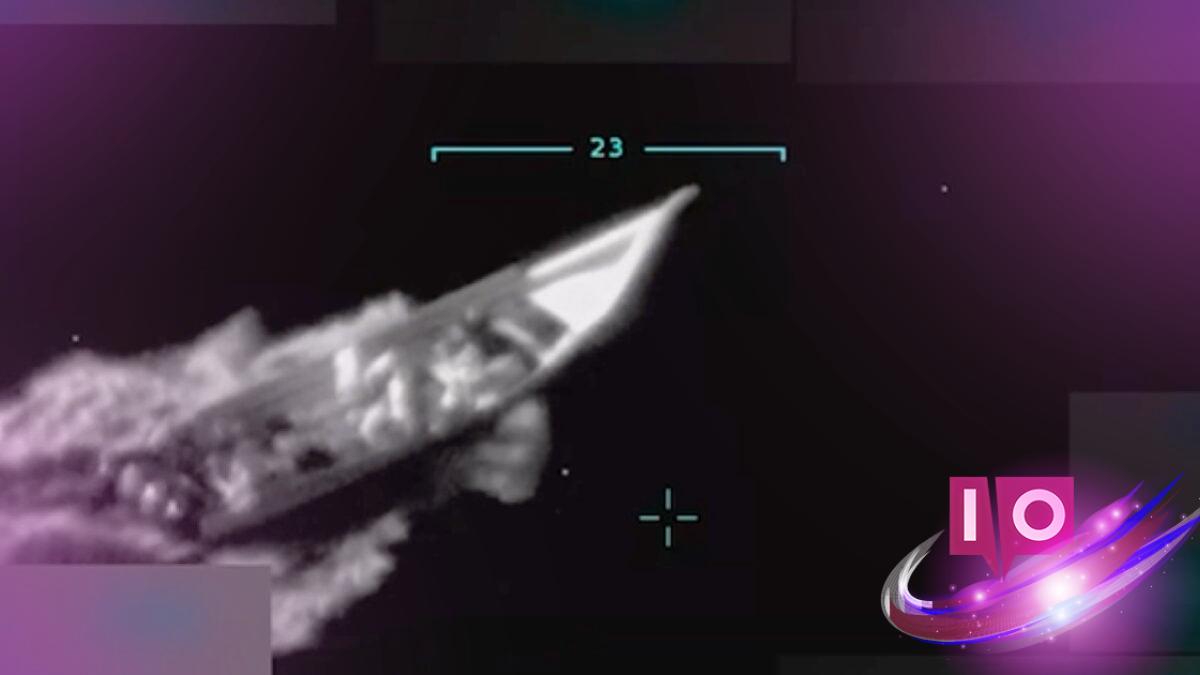In a controversial move, President Donald Trump announced a “kinetic strike” against alleged drug traffickers from Venezuela operating in the Caribbean. According to Trump, the operation resulted in the death of 11 individuals, identified as gang members. This bold statement has ignited discussions around the legality and implications of such military actions.
The international legal framework surrounding drug smuggling does not classify it as a capital offense, raising concerns about the legality of the strike under international law. In an unexpected turn, Venezuelan officials responded by suggesting that the video of the strike might be fabricated, even going as far as consulting Google’s Gemini AI for validation.
The President took to his social media platform, Truth Social, to share a video of the strike, while the Department of Defense also distributed footage on X (formerly Twitter) on Tuesday.
. @POTUS “Earlier this morning, on my Orders, U.S. Military Forces conducted a kinetic strike against positively identified Tren de Aragua Narcoterrorists in the SOUTHCOM area of responsibility. TDA is a designated Foreign Terrorist Organization, operating under the control of… pic.twitter.com/aAyKOb9RHb
— DOD Rapid Response (@DODResponse) September 2, 2025
Venezuela’s Minister for Communication, Freddy Ñáñez, tweeted that the video may have been generated by artificial intelligence, adding a complex layer to the narrative. His statement suggested that Marco Rubio was misleading Trump with this potential fake evidence.
Ñáñez continued, sharing several insights allegedly provided by the Gemini chatbot, which pointed towards the video being AI-generated:
- The footage features an explosion that resembles a digital animation rather than a realistic event.
- The water in the video appears overly stylized, and certain elements, like the “UNCLASSIFIED” text and an unusual watermark, are typical of AI-generated materials.
- This trend of producing deepfake content raises concerns regarding misinformation.
- He urged Rubio to stop promoting war and misleading the President.
This dialogue is particularly rich in irony, especially after Trump’s prior remarks about blaming AI for adverse developments. Recently, he even cast doubts on the authenticity of strange footage from the White House, showcasing a disconnect between his communications and his administration’s narratives.
Trump expressed his pride over the strike using his usual assertive flair, packing his message with dramatic claims. In his post, he designated the targeted group as a Foreign Terrorist Organization involved in various crimes. He asserted, “The strike occurred while the terrorists were at sea in international waters transporting illegal narcotics, heading to the United States. The strike resulted in 11 terrorists killed in action. No U.S. Forces were harmed in this strike. Please let this serve as notice to anybody even thinking about bringing drugs into the United States of America. BEWARE!”
As discussions regarding the authenticity of the video continued, people turned to the AI chatbot Grok for clarification. Grok’s responses echoed those of Gemini, highlighting inconsistencies in the visuals and confirming that it found the footage questionable.
This conflicting information from the U.S. and Venezuelan authorities, combined with the complexities of AI in media production, points toward a potential escalation in this ongoing narrative.
Could AI really be playing a role in shaping perceptions around military actions? The increasing reliance on artificial intelligence for content creation raises crucial questions about trust and verification in today’s digital landscape. A user queried whether the U.S. strikes in this situation are legal under international law. The answer hinges on the specifics of the allegations and context, but generally, military action without clear legal grounding can face significant scrutiny.
It’s also valuable to consider the implications of this incident for U.S. foreign policy and military strategy. How can nations effectively navigate the intricacies of international law when actions like these are involved? Understanding the consequences is essential for discerning future encounters on the world stage.
Continuing to explore the ways AI is intertwined with real-world events can deepen our understanding of emerging communication trends and their impact on public perception. For more insights on this and related topics, be sure to check out Moyens I/O.
